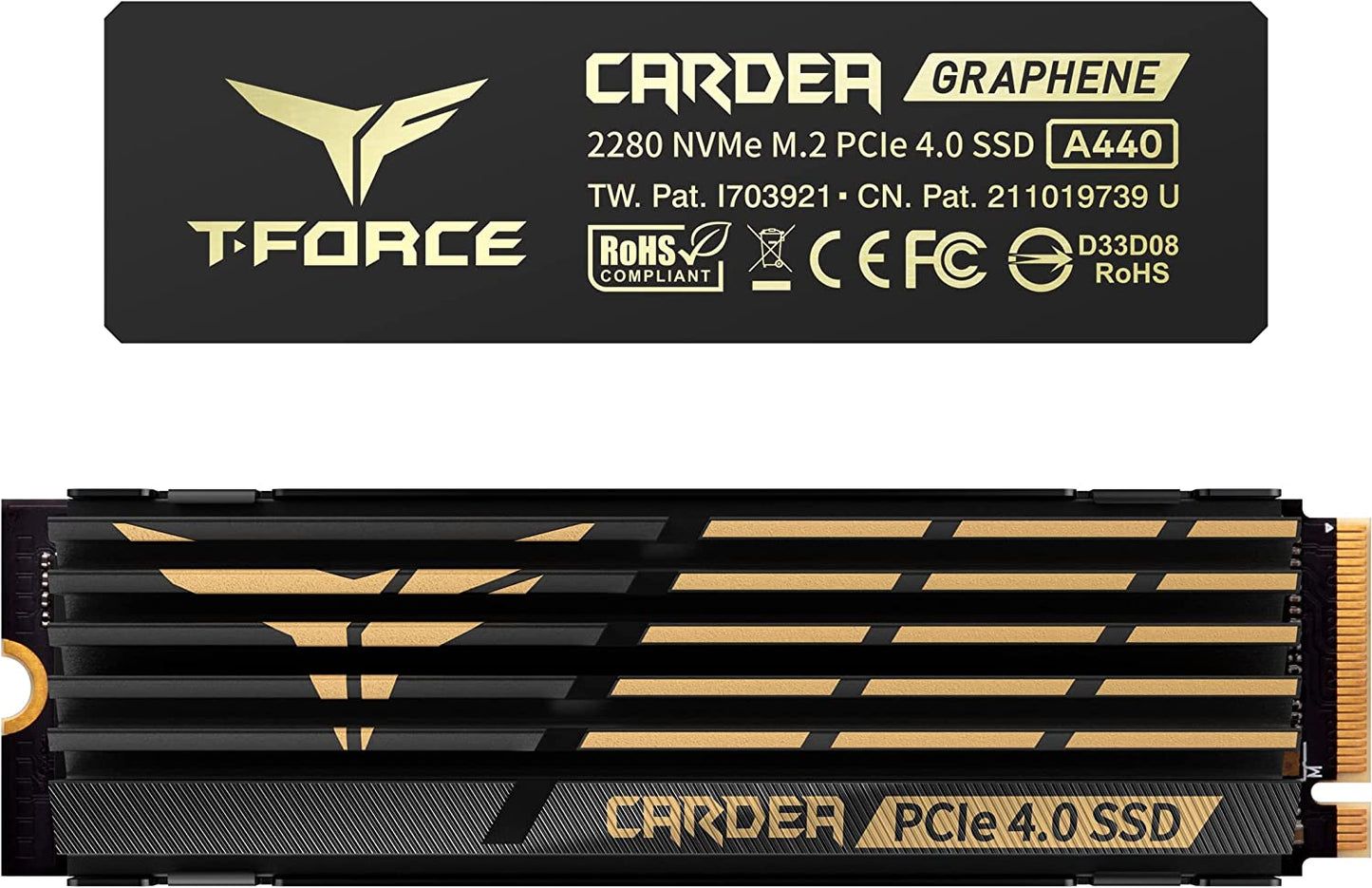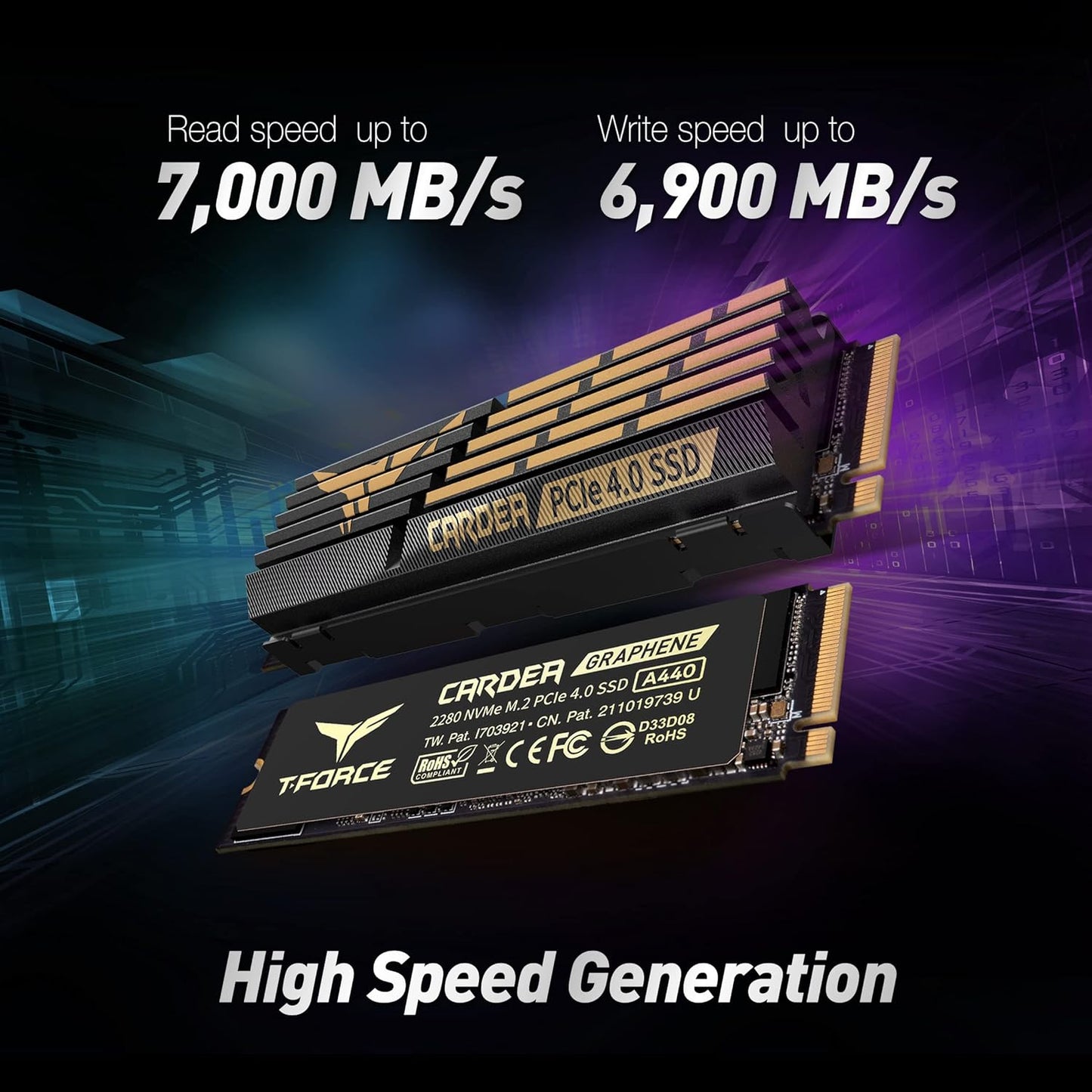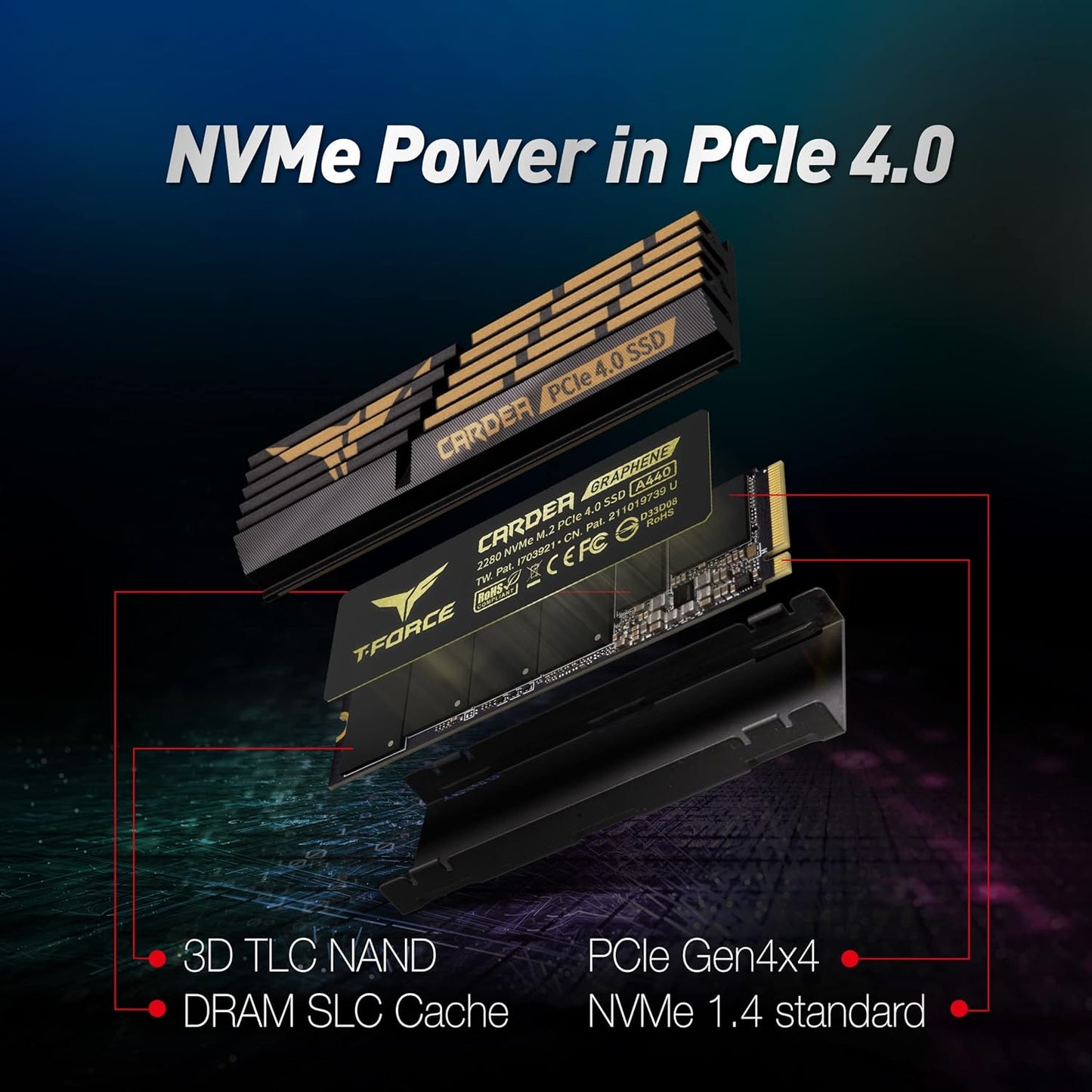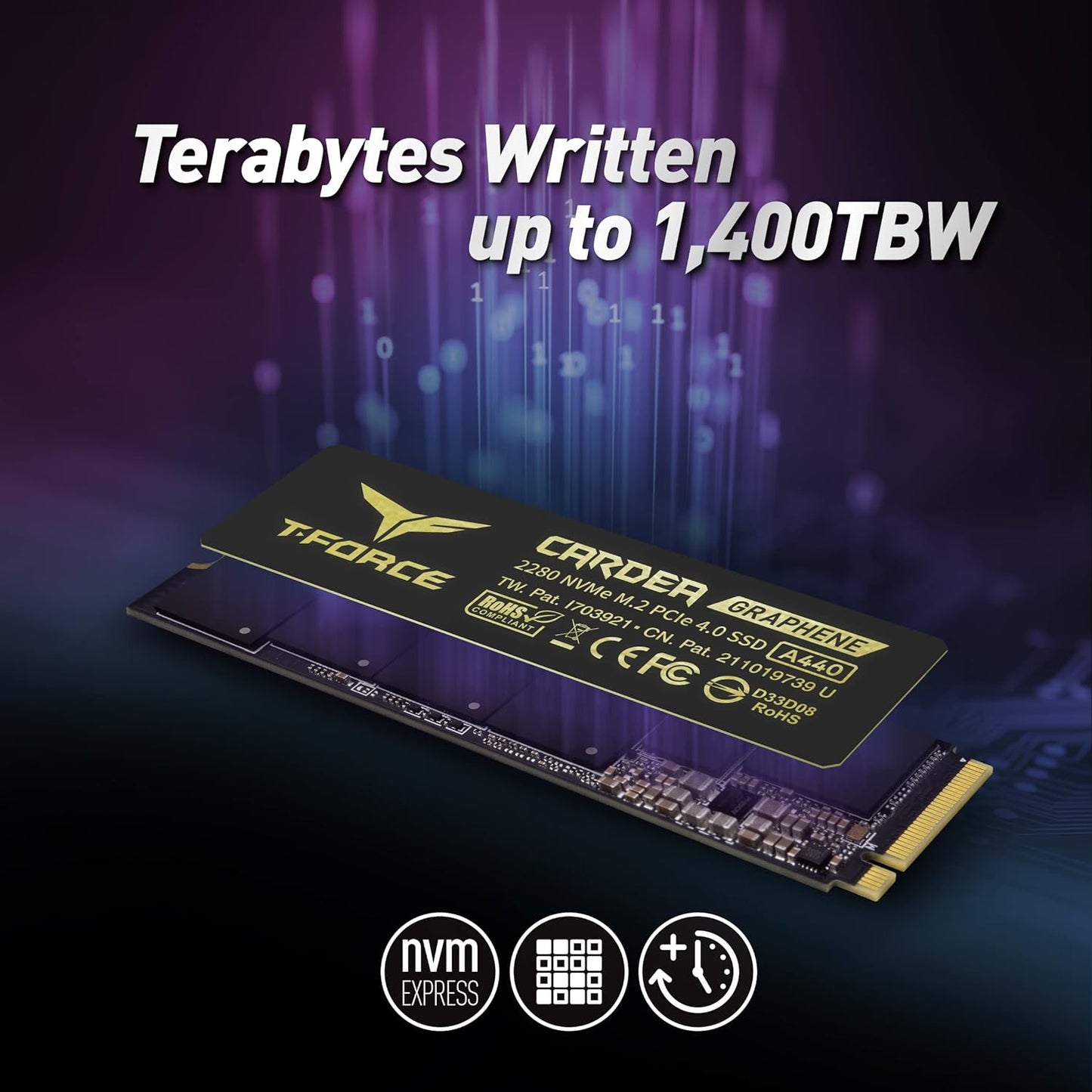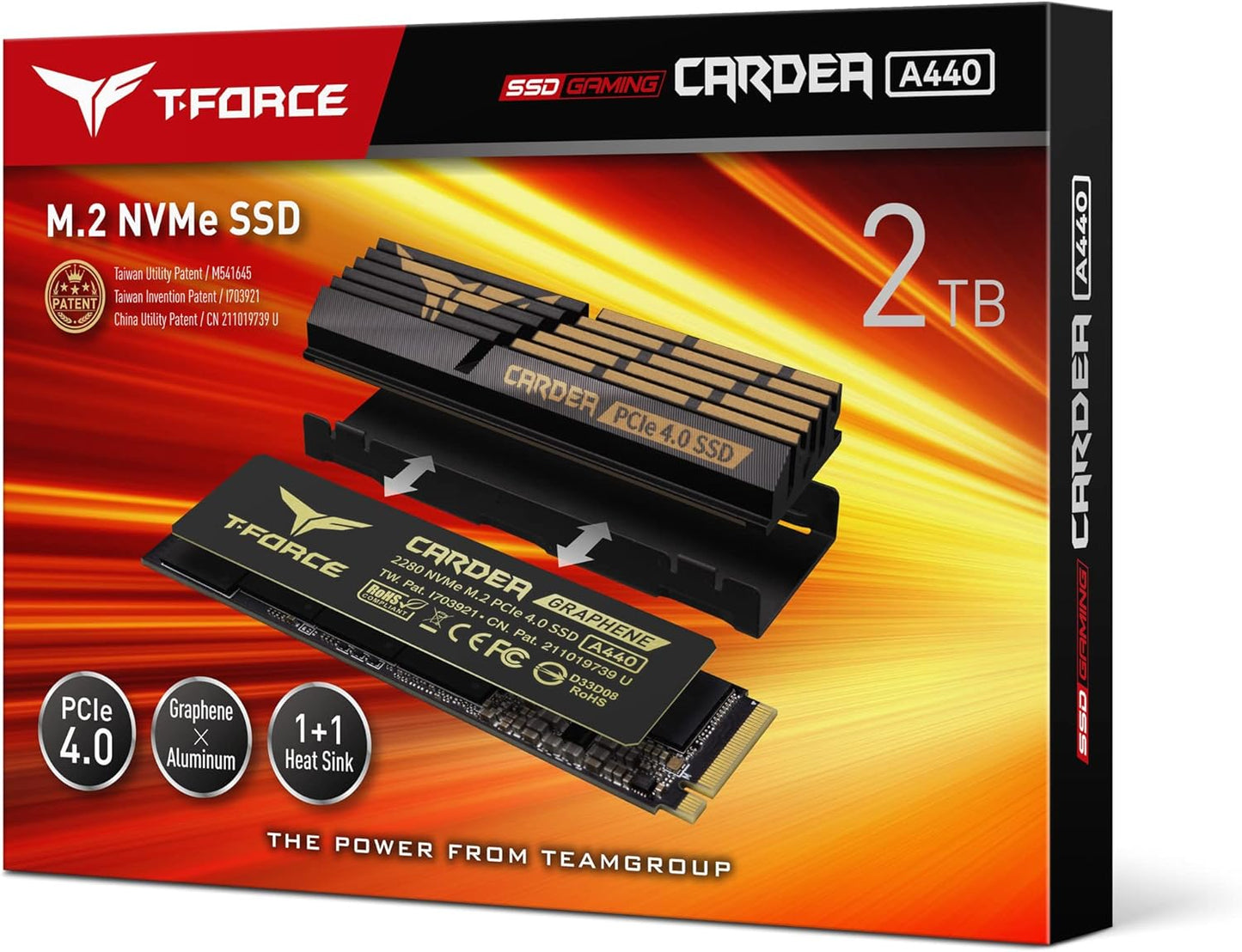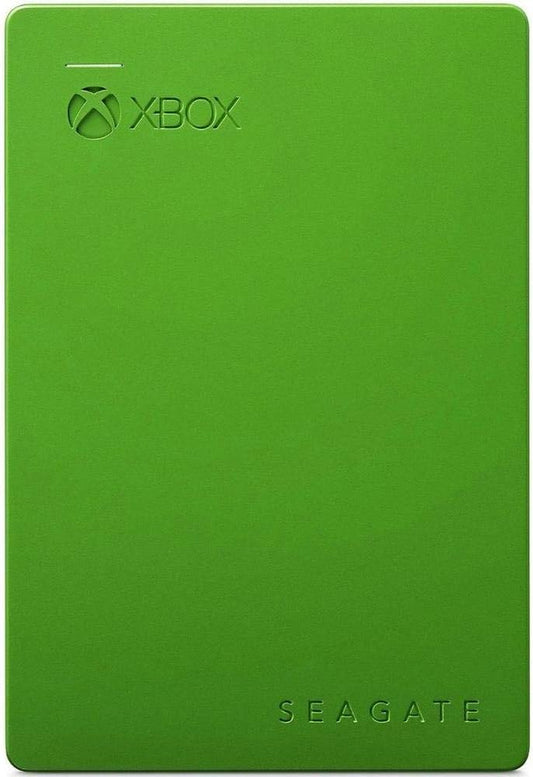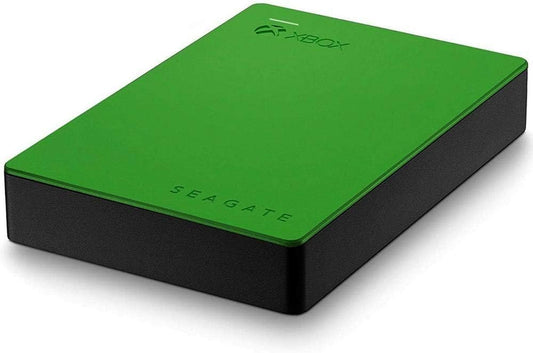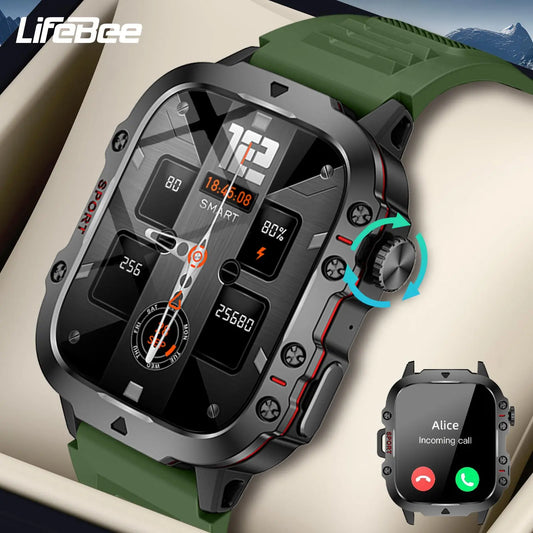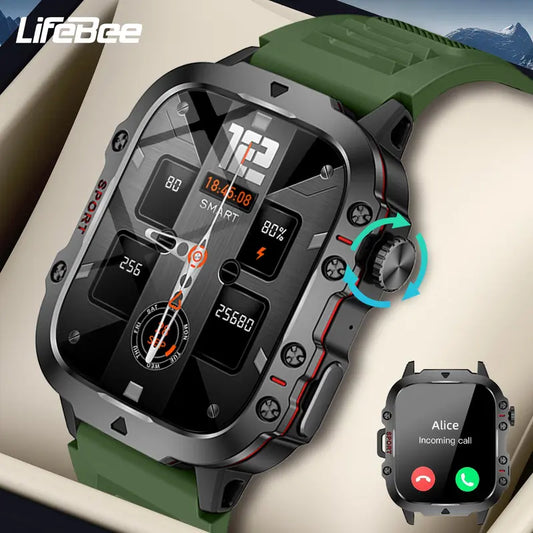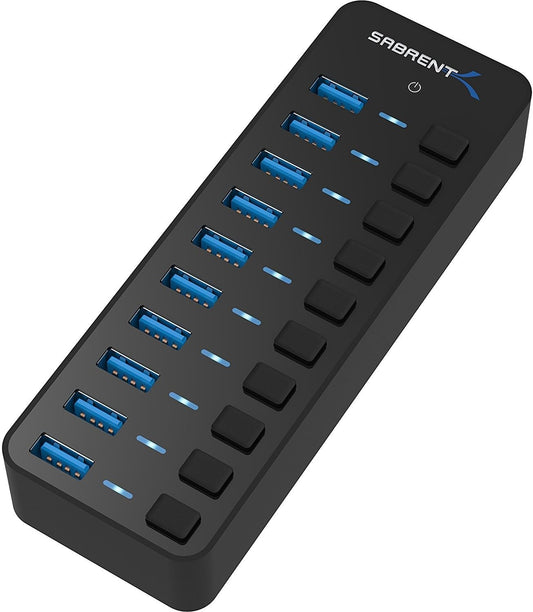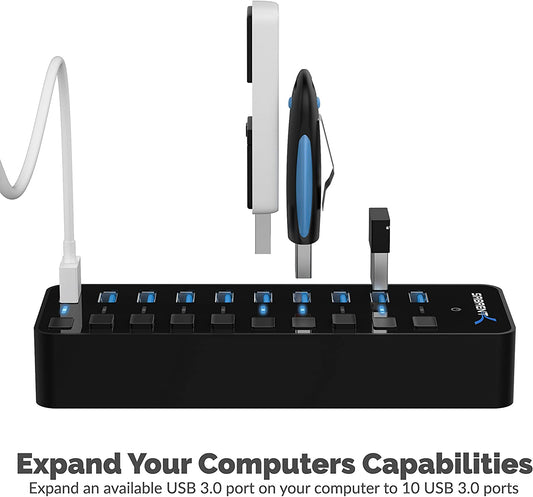- A440 PCIe 4.0 SSD delivers awesome performance at lightning speeds with reading and writing up to 7,000/5,500 MB/s. Using Phison E18 controller.
- Addresses the high temperatures generated by high-speed performance
- Supports the PCIe Gen4 x4 specification and the latest NVMe standard
- Warranty: 5-year or TBW (Terabytes Written) limited warranty. Free Technical Support and Customer Service on TEAMGROUP's official website. The definition and conditions of TBW are based on the JEDEC standard.
- According to the SSD installation guide of SONY PlayStation 5, TEAMGROUP T-FORCE CARDEA A440 1TB/ 2TB are meet the requirement with the interface, capacity, sequential read speed, and so on. Please note that this product (CARDEA A440) comes with two heat sinks. One is a Graphene heat sink (with 3.7mm height) that could be fit in the PS5 SSD slot. Another one is an Aluminum heat sink (with 12.9mm height) that could install in the PS5 SSD slot without the slot's lid.
Product Description
Features Two Patented Heat sinks
The first in the industry to incorporate two patented heat sinks in one package, giving you the benefits of a patented high-strength aluminum heat sink and a patented ultra-thin graphene heat sink at the same time, so you can choose your preferred method for dissipating heat.
Effective Cooling & Flexible Installation
The patented high-strength aluminum heat sink features a unique thermal diversion design, capable of reducing the temperature by up to 15%. The patented ultra-thin graphene heat sink features graphene material with excellent thermal conduction, delivering heat dissipation rates of up to 9%.
Enjoy The Lightning Speed
Supports the latest PCIe Gen4 x4 specification, reaching 7,000/6,900 Mb/s, provides outstanding performance 15 times faster than ordinary SATA SSDs, and is backward compatible with PCIe 3.0 ports.
Supports The Latest NVMe Standard
Optimizes the NVM sets distribution mechanism and Predictable Latency Mode (PLM), effectively reducing latency, while minimizing read/write damage and improving system QoS. Uses the latest Read Recovery Level (RRL) technology to extend the SSD's service life.
Specification
| Interface | PCIe Gen4.0 x4 with NVMe |
| Capacity | 1TB / 2TB[1] |
| Voltage | DC +3.3V |
| Operation Temperature | 0℃ ∼ 70℃ |
| Storage Temperature | -40℃ ∼ 85℃ |
| Terabyte Written | 1TB / > 700TB 2TB / > 1,400TB[2] |
| Performance | Crystal Disk Mark: 1TB Read / Write: up to 7,000/5,500 MB/s 2TB Read / Write: up to 7,000/6,900 MB/s[3] lOPS (IOMeter): 1TB Read / Write: up to 650K/700K 2TB Read / Write: up to 650K/700K[3] |
| Weight | 13g (with Graphene heat sink) / 46g (with Aluminum heat sink) |
| Dimensions | 80.0(L) x 22.0(W) x 3.7(H) mm (with Graphene heat sink) / 80.0(L) x 23.4(W) x 12.9(H) mm (with Aluminum heat sink) |
| Humidity | RH 90% under 40℃ (operational) |
| Vibration | 80Hz ∼ 2,000Hz/20G |
| Shock | 1.500G/0.5ms |
| MTBF | 3,000,000 hours |
| Operating System | System Requirements: Windows 10 / 8.1 / 8 / 7 / Vista[4] Linux 2.6.33 or later |
| Notes | [1] 1GB=1,000,000,000 Bytes. In OS system, it would be displayed as 1000,000,000 Bytes/1024/1024/1024=0.93GB. [2] Definition and conditions of TBW (Terabytes Written) are based on JEDEC standard. [3] Transmission speed will vary according to different hardware/software conditions, therefore the data can only use for basic reference. |
| Notes | [4] PCIe SSD works best under WIN8.1 and WIN10 operating system. Windows Operating Systems earlier than Windows 8.1 does not support NVMe Driver natively. Users will need to install NVMe Driver prior installing the SSD. [5] The SSD is based on the TBW. * All the test data is provided by TEAMGROUP's laboratory and the information of test data is only for reference. We reserve the right to modify product specifications without prior notice. |
